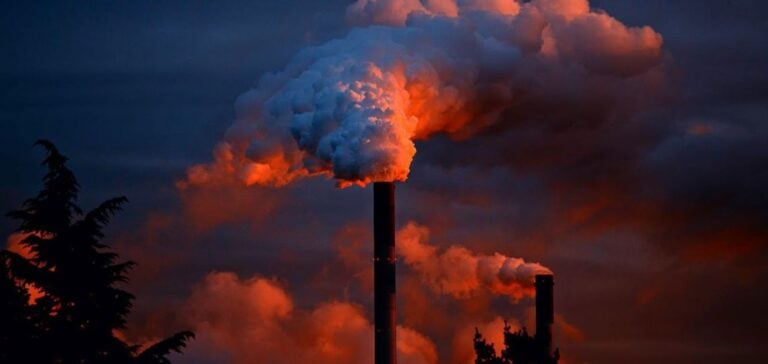Global carbon dioxide (CO2) emissions from fossil fuels are set to hit a record high in 2024, with 37.4 billion tons projected, according to data released by the Global Carbon Budget project during COP29. This 0.8% increase compared to 2023 highlights the limitations of current efforts to reduce global emissions, despite the growing adoption of renewable energy sources.
The primary drivers of this increase remain natural gas and oil, whose demand continues to rise. Natural gas emissions are expected to grow by 2.4%, while oil-related emissions will increase by 0.9%. Meanwhile, coal emissions, although slightly up by 0.2%, still represent a significant share of global emissions.
Renewables progress but fall short
Although solar and wind energy continue to expand, they are not sufficient to offset the growing consumption of fossil fuels. The aviation and maritime transport sectors are seeing a notable recovery, with a 7.8% increase in emissions, although still below pre-pandemic levels.
These trends reflect a global inertia in energy transition, according to experts. Total CO2 emissions, including land-use changes, have plateaued at around 41.6 billion tons over the past decade, preventing any significant reductions in the short term.
Divergent analyses
Not all experts share the report’s pessimism. According to consultancy DNV, global emissions could peak as early as 2024, driven by the rapid adoption of five key technologies: solar energy, wind power, nuclear energy, heat pumps, and electric vehicles.
However, this optimistic outlook is contested by S&P Global Commodity Insights, which emphasizes that political and economic constraints limit countries’ ability to meet their climate commitments. In their baseline scenario, greenhouse gas emissions are expected to peak in the mid-2020s, followed by a gradual decline to about 30 billion tons by 2050.
A challenge for the international community
The Global Carbon Budget report calls for accelerated efforts to reduce the world’s dependence on fossil fuels. While technological advances and policy initiatives have been implemented, they remain insufficient to reverse the current trajectory.
The rising emissions highlight the need for enhanced international cooperation and more ambitious measures. The coming years will be crucial in determining whether the global community can limit the impacts of climate change by meeting the goals set in the Paris Agreement.






















